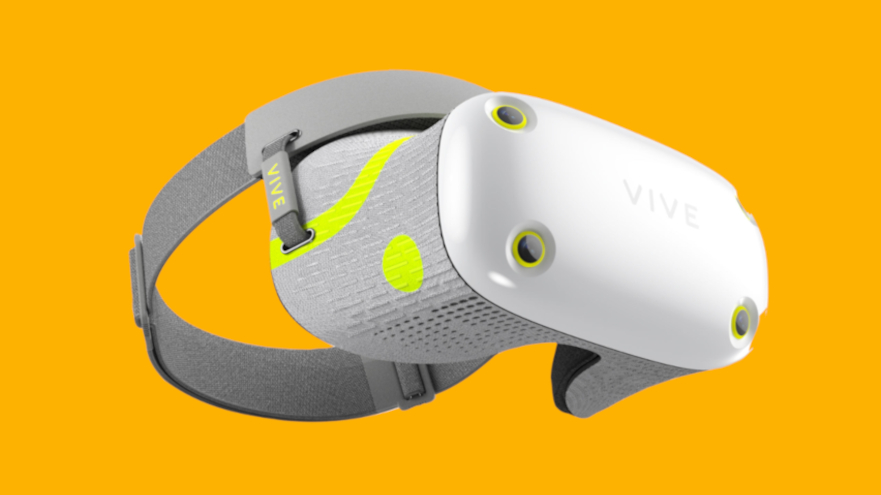HTC Vive Air VR headset is a sports shoe for the face

Sign up for breaking news, reviews, opinion, top tech deals, and more.
You are now subscribed
Your newsletter sign-up was successful
With the launch of the HTC Vive back in 2016, HTC proved it could lead the competition when it came to VR headsets. Now, it looks like the company is preparing to shake up the market once more with the release of a new, fitness-focused headset, the Vive Air.
According to a presumably-premature listing on the World Design Guide awards website (spotted by Engadget), the Vive Air VR headset is “specially designed for virtual fitness” and “optimized for high intensity with long use.”
It also looks to be utilizing sports-shoe inspired knitted materials – of the kind used in Nike and Adidas trainers – to provide new levels of comfort and fit from a VR product.
- These are the best VR headsets of 2021
- Check our our review of the Oculus Quest 2
- Read our review of the HTC Vive
The World Design Guide website suggests these breathable and quick-drying fabrics will allow the device to remain lightweight, improve ventilation and – crucially – be machine washable, with a “quick-release design” to remove soft components.
As for its specs, we spotted four tracking cameras – similar in position to, but slightly larger than, those found on the Oculus Quest 2 – but that’s about it for detail. It’s clear, though, that this is a device with comfort and practicality at the forefront of its fitness-based design, rather than a headset dedicated to gaming.
This could work out for HTC
The Vive Air seems like a logical step for HTC given the boom in home fitness-related product sales brought about by the global pandemic.
With the Oculus Quest 2 proving the most successful of the mainstream VR headsets so far, this potentially-upcoming HTC device could re-establish the brand's foothold in the virtual wearable industry.
Sign up for breaking news, reviews, opinion, top tech deals, and more.
More than just a shrewd business move, though, the Vive Air taps into perhaps the most apt use of VR to date – virtual workouts. Dance, yoga and boxing programs seem primed to occupy virtual spaces in the near future, and this could prove a major step in the direction for a technology that has struggled to establish a real sense of purpose.
Given that there hasn’t yet been an official word from HTC on the existence of the Vive Air, we don’t have any details as to when the device might arrive. As per the website listing, though, a launch date of 2021 seems likely. It's also worth noting that the Vive Air might only be a concept design, after all, laying the groundwork for a fully-fledged headset product further down the line.
In any case, the company’s ViveCon 2021 event is scheduled to take place in May – so we expect to hear more regarding the device around then.
- This futuristic VR tech could be a game-changer for virtual reality headsets
Via Engadget

Axel is TechRadar's Phones Editor, reporting on everything from the latest Apple developments to newest AI breakthroughs as part of the site's Mobile Computing vertical. Having previously written for publications including Esquire and FourFourTwo, Axel is well-versed in the applications of technology beyond the desktop, and his coverage extends from general reporting and analysis to in-depth interviews and opinion.
Axel studied for a degree in English Literature at the University of Warwick before joining TechRadar in 2020, where he earned an NCTJ qualification as part of the company’s inaugural digital training scheme.